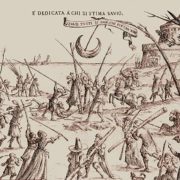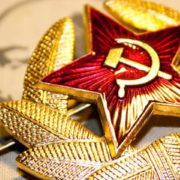
There is a perverse (or virtuous, depending on the point of view) geometry at play – that between ex-US President Donald Trump, Russian President Vladimir Putin, EU ultraright, and Asian politics. The statements by Trump, running for the Republican nomination for the November US presidential election, are causing ripples in the ongoing wars.
A strong signal was sent in his remarks about NATO, suggesting that member countries could be handed over to Russia if they do not pay for defense expenses. Another one was about dissident Navalny, killed in a Russian prison — Trump implied that the US is worse than Russia. These positions de facto embolden Putin in his war in Ukraine and his support for Iran, a major sponsor of both Hamas terrorists and Yemen’s Houthi, disrupting global trade.
With such backing, Putin can continue to abet and assist Europe’s far-right, pushing for a split in the EU, considered a source of all evils. However, a divided EU opens the doors to greater Russian influence in the continent.
The agreement for the single market and the European Union after WWII ended was supported by America as a bulwark against Russian encroachment on the continent. With the Ukrainian war, a fractured Europe would mean leaving Ukraine and Eastern European countries more isolated, handing Putin a significant political victory.
Trump’s statements reveal a deep and somewhat legitimate design by some in America. There are apparently two contrasting visions of Europe: one of Europe opposing Russia and another where the US outsources Europe’s troublesome management to Russia. Both paths have risks for the US. A more united EU with an independent agenda could pose uncertainties for America, especially in times of general confusion.
Outsourcing Europe, even partially, to Russia would be a leap into the unknown that contradicts 80 years of American policy. Given Europe’s huge differences and tensions, the second vision could lead to a split in the EU and a fragmentation of Italy, politically united with Trento and Trieste only a century ago. During this time, differences between regions in Italy have increased, straining an already artificial political union.
A more divided Italy could morph into Sicily being de facto or even de jure handed over to an American administration due to its strategic importance in the Mediterranean. At the same time, the rest could be left to more or less direct Russian influence. This was Italy’s state until 1860, with the British in place of the Americans and the Austrians and Russians in place of Putin.
It may be right. Italy was, for millennia, only a geographical definition, and perhaps it is fitting that it should become one again now. We only have to be aware of the consequences of our actions.
Former Italian Prime Minister Mario Draghi recently proposed a political strengthening of the EU. Such a proposal would consolidate the EU and the political union of Italy. Of course, a politically stronger EU would have to negotiate new agreements and guarantees with the US.
A victorious Putin in Europe would empower the Iranian ayatollahs in the Middle East. They could declare a political victory regardless of the outcomes for Hamas in Gaza or at home. In Iran, over 70% of the population might choose not to cast a ballot in the upcoming parliamentary elections, hence voting with their feet against the regime.
In this plan, the grand exchange between America and Russia should persuade Moscow to align against China, the US’ major strategic adversary. It should be the opposite of Nixon’s deal with Mao in 1972 when China sided with the US against Russia in the Cold War. However, conditions are very different now, and the outcome is uncertain.
A strengthened Russia in Europe becomes a different player across all of Asia. India, a historic friend of Moscow currently tilting towards Washington, might revert to its old affinities. The same goes for Vietnam. Furthermore, Russia could employ a dual policy with Beijing and Washington, wearing both out.
These are just hypotheses for now, but the alchemy of the Trump-Putin relationship has set these trends in motion on their own. Of course, Trump could change his position once elected, and there’s the not-so-remote possibility that Joseph Biden gets re-elected, with these theories ending up in alternate history novels.
However, everything remains confused today. We are on the eve of crucial elections in Iran (1st March), the opening of the National People’s Congress in China (5th March), the presidential elections in Russia (15th March), and the upcoming round of Republican primaries. All these events could strengthen Trump’s stance, and it could have a significant impact on the wars in Ukraine, Gaza, and Yemen, with repercussions in Italy as well.





